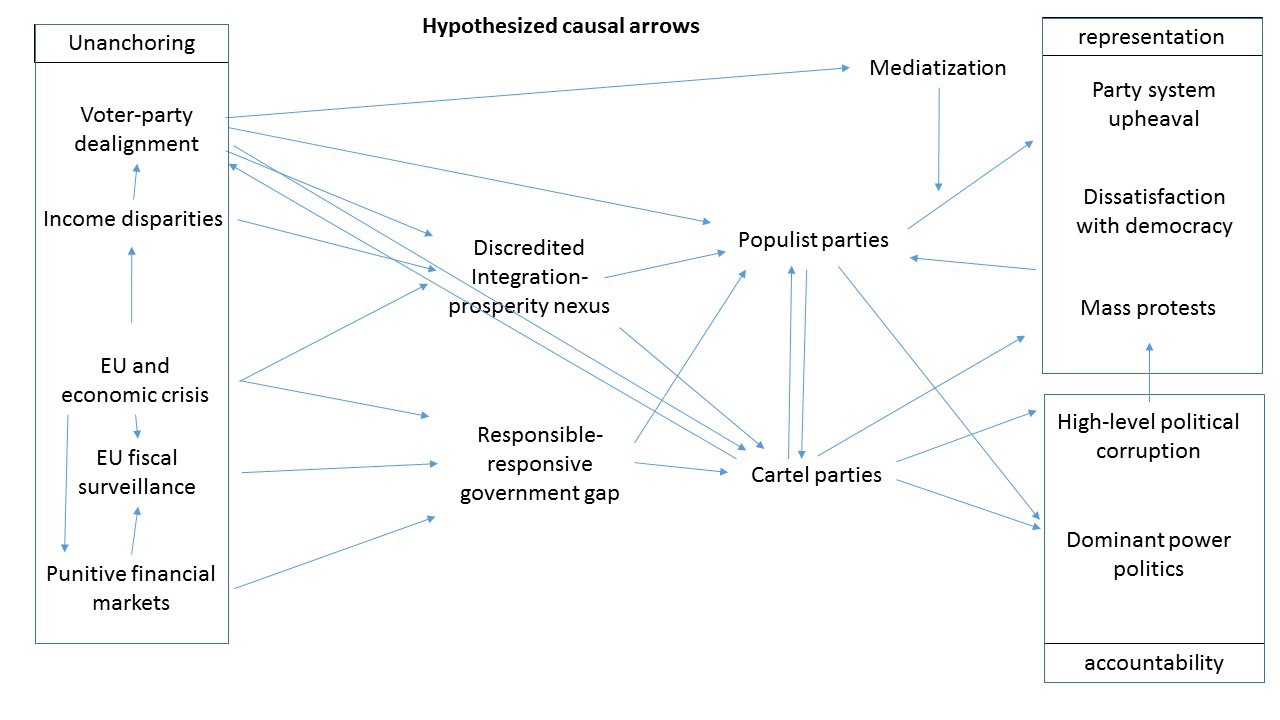This project studies and compares the state of democracy in six East-Central European countries: Croatia, the Czech Republic, Hungary, Poland, Slovakia and Slovenia. Such a comparative survey is deemed timely because there have been electoral landslides, corruption scandals involving political leaders and mass protests in several of these countries. Popular satisfaction with democracy has declined and democratic accountability institutions have been eroded in one of the countries, Hungary. These developments pose questions about where these democracies are heading and how their paths are related to the crisis of European integration.
The project is a cooperation among Attila Ágh (Budapest), Davor Boban (Zagreb), Branislav Dolný (Bratislava), Petra Guasti (Mainz/Prague), Lars Johannsen (Aarhus), Alenka Krašovec (Ljubljana), Darina Malová (Bratislava), Zdenka Mansfeldová (Prague), Claudia Matthes (Berlin) and me. We have written country case studies and comparative papers which are currently under review for a Special Issue of a scholarly journal. We have discussed our drafts on two panels at the 2013 and 2014 annual conferences of the Central European Political Science Association.

In my cross-nationally comparative paper, I argue that the crises of economic and European integration together with the existing dealignment between voters and political parties have discredited the nexus between economic integration and prosperity and widened the incongruence between responsive and responsible government. The impact of the crises differs from country to country, depending on institutional constraints, socio-political cleavages and the interrelation of economic and democratic performance. Multi-dimensional policy spaces facilitated the growth of anti-establishment parties in the Czech Republic and Slovenia. Higher performance expectations of citizens, the chosen electoral system and missing institutional safeguards of societal-political pluralism rendered Hungary’s democracy more vulnerable.
Download my introductory paper:Brusis_POPC_web
See also this edited volume and this keynote